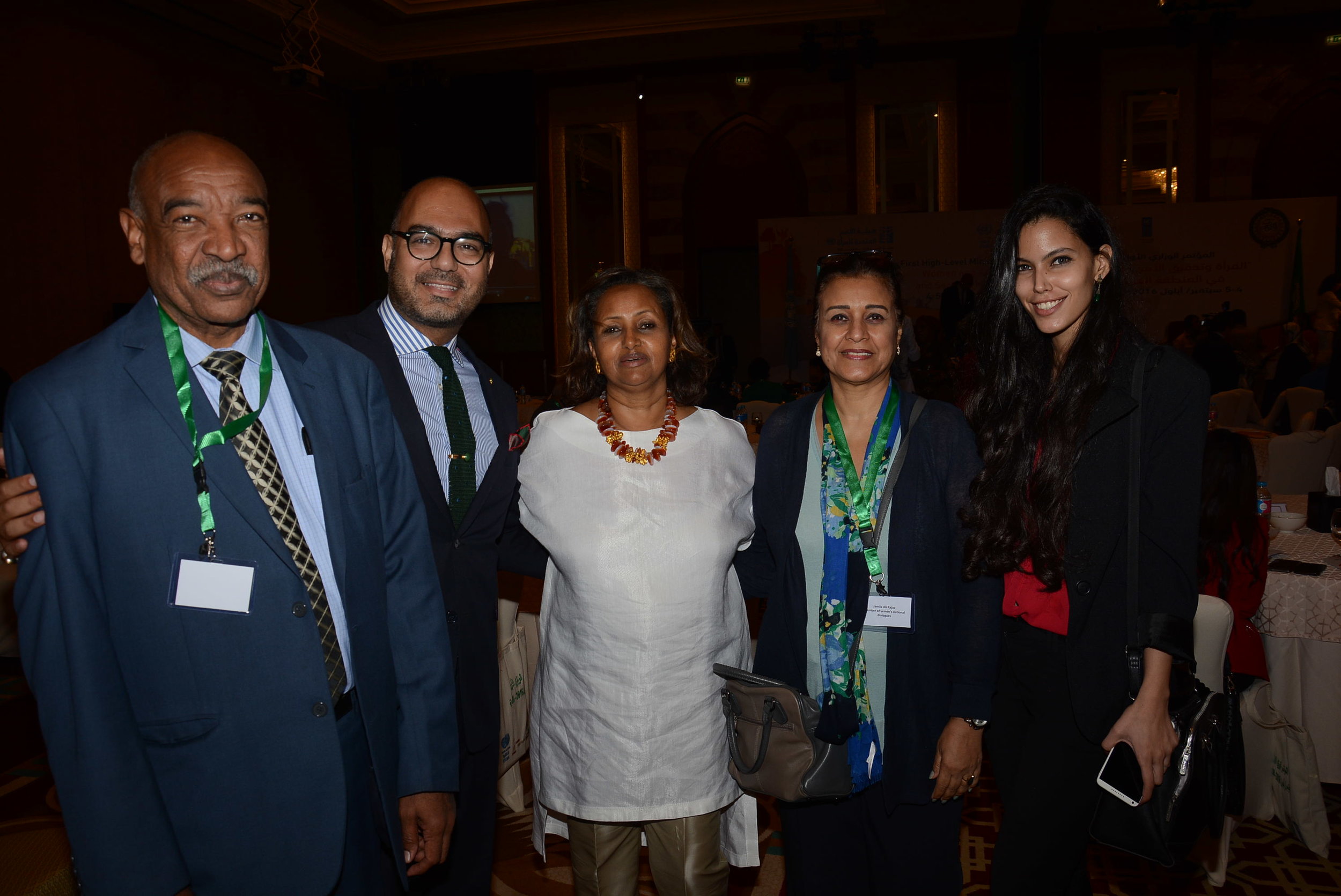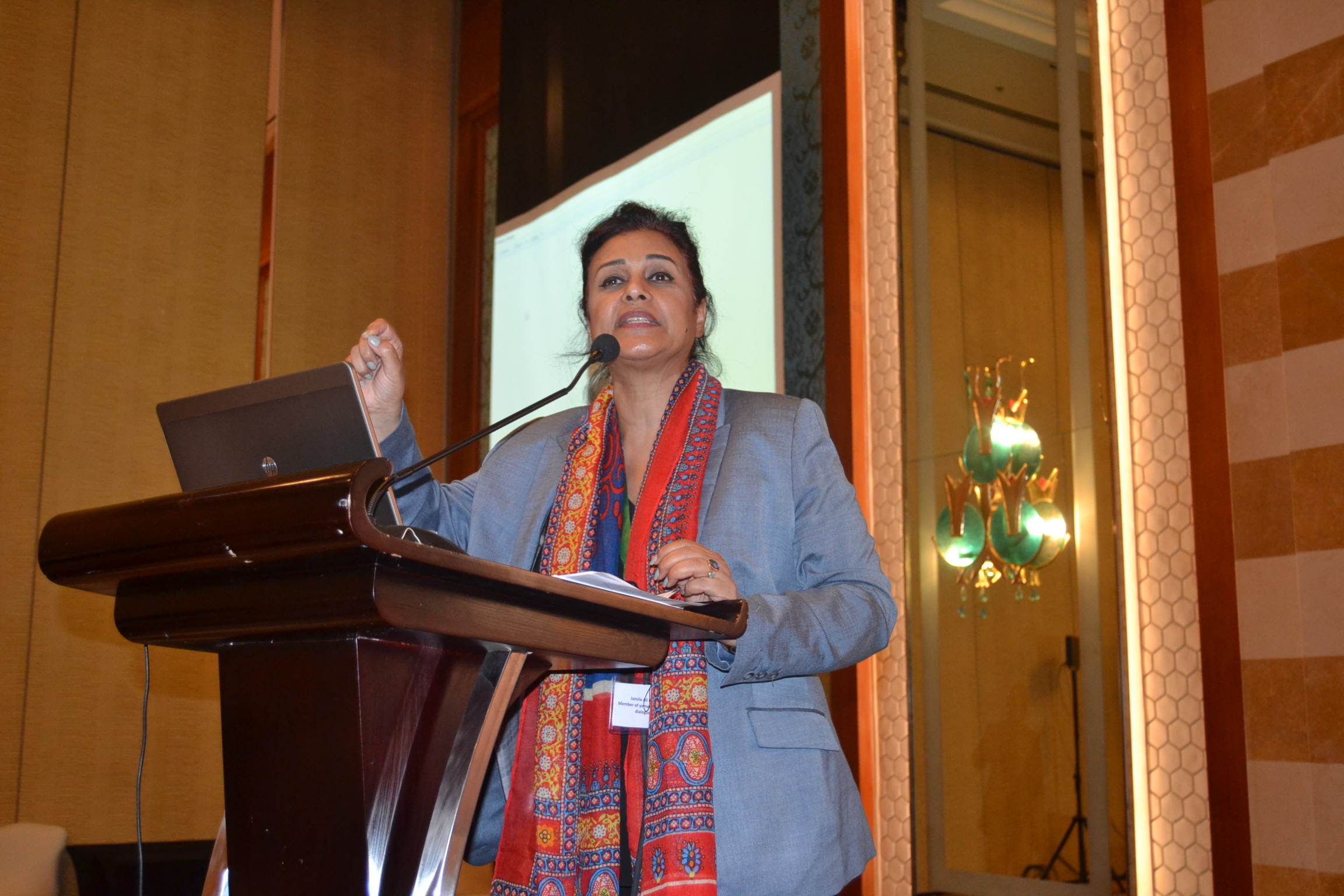Ministers and Activists Meet in Cairo to Promote Women’s Participation in Bringing Peace to the Arab Region
The first ministerial meeting of the League of Arab States on women, peace and security represents an important step, women leaders from the Arab region have said. Government ministers, representatives of international institutions and activists met in Cairo between 4-5 September to discuss how women could play a greater role in bringing peace to the Arab region.
The two-day conference was attended by leading regional and international figures, and was opened by Ahmed Aboul Gheit, Secretary-General of the League of Arab States.
The meeting's civil society partner, Cairo-based NGO Karama, brought a range of speakers from across the Arab region to discuss the role that women’s groups and activists play in protecting women affected by conflict, and promoting their increased participation in peace talks and public life. These delegates brought with them first-hand experience of conflict resolution, political negotiations and the struggle for National Action Plans in Libya, Yemen, Somalia, Sudan, Palestine and Jordan.
The conference comes just over 15 years since the formalisation of the women, peace and security agenda under UN Security Council Resolution 1325. The resolution underlines the particular risks that women face from conflict, political violence and instability. It also underlines the fact that women should play an active role in peace negotiations. Amongst other things, the League of Arab States conference sought to develop a road map for Member States to meet their international obligations on women, peace and security. So far only two countries in the region - Iraq and Palestine - have formalised their obligations into National Action Plans for women, peace and security.
The delegates from civil society organisations all identified a lack of political will and resources as being the greatest obstacles to increased protection of women in conflict and women’s participation in conflict resolution and political processes.
Commenting on the conference Hibaaq Osman, CEO and Founder of Karama, said:
“From civil wars to political instability to occupation, the Arab region is currently facing some of the world’s worst and most intractable violence and conflict. Women in the region not only have to the deal with the consequences of this violence, they must also face the indignity of exclusion from the processes seeking to bring peace and stability to the region. Without women, there will be no lasting peace in the Arab world.
“This conference provided an essential opportunity to discuss how women in the region have been affected by conflict and violence, and the courage they have shown in campaigning for their rights. But the lesson of last 15 years of the women, peace and security agenda has been that support must start at the highest level of government in order for women to be protected and for them to participate meaningfully.
“The work that ministers, experts and activists have carried out in Cairo has been an important step - but it is just a first step. It must be followed by actions from governments, international institutions and donors. We need to see policies like increased and guaranteed quotas for women in peace negotiations and in national parliaments, and increased support for civil society organisations carrying out vital work in the region, from supporting refugees and victims of sexual violence, to ensuring women’s voices are heard at all levels of decision-making, civil society organisations in the Arab region are leading the way on women, peace and security; they must be given more support.
“We thank the Ministers who participated in this conference, and we hope that the commitment they have shown will encourage ministers in all member states to start taking the women, peace and security agenda with the same seriousness.”
Jamila Ali Rajaa, former member of Yemen’s National Dialogue Conference and a senior researcher, mediator and expert on gender, media and peacebuilding, said:
“In the matter of peace and security the importance of partnership between the Arab governments and civil society should be inevitable. This partnership should include women. I hope this meeting is only a beginning for a long lasting understanding of the perils that lie ahead if this partnership is not secured.
“In the case of Yemen, I hope the fighting recedes and all parties return to the negotiating table so as to achieve an inclusive and just peace. The high price of war should instigate a peaceful solution which should not exclude women throughout its process.”
Lily Feidy, CEO of the Palestinian Initiative for the Promotion of Global Dialogue and Democracy (MIFTAH), said:
“The region has already witnessed the strength and infliuence that civil society can exert. Civil Society Organizations in Palestine spearheaded the work on UN Security Council Resolution 1325; the government followed suit. Empowered women will empower the whole nation. “Peace and Security will be realized in the Arab World when women will assume their role as agents of change.”





